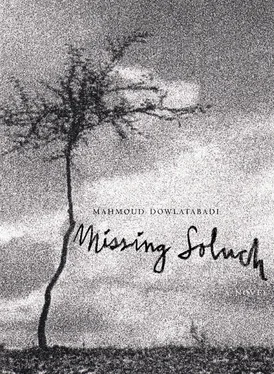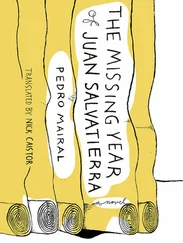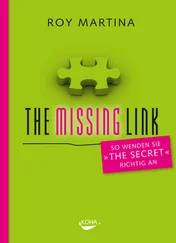He turned toward home.
* * *
The lamp was still lit. It seemed Mergan had left the lamp on to mark an auspicious occasion. Abrau crept in the doorway quietly, thinking his mother would be asleep. He slid into a corner softly and quietly and lay down. But Mergan was not asleep. She was sitting with her back against a wall in the weakly flickering light, and she had Hajer’s head in her lap. She was murmuring to her daughter and stroking her hair with her hand. Hajer had laid her head on her mother’s knee like a lamb, and her eyelids grew heavier and heavier. Yet she struggled to keep listening to her mother’s oratory, which her mother had begun early in the evening. She had begun to describe every detail that a girl should know on the eve of her marriage; everything her daughter should be aware of before setting foot in her new husband’s home.
If alone, mothers are often able to speak to their daughters without exaggeration or metaphor, and by speaking, pull out what is most often left unsaid, like pulling a snake out of its hole. Indeed, this may be one of the most gratifying moments of her life: when she explains the duties and expectations of a wife in marriage. At these moments, the whispered sentiments of the mother, in fact, relate her own unfulfilled dreams. Her hopes and fears are held within these words, and the expectations she had once had that are now gone — but not forgotten — are mixed with an optimism for the future, overtaking her words and giving them an attractive hue. Her speech settles within the heart and her tone is sweet and light. At this moment, the mother grants her daughter the wisdom of her experiences — either pleasures or disappointments — drop by drop. And at the same time, the daughter is nourished by her mother’s life, drop by drop, and she stores away the most valuable elements from it. So for both, such nights are as sweet as honey.
But with Abrau’s arrival, Mergan went silent. Abrau was lost in his own thoughts, and Mergan treated him as a stranger. What she had been sharing with her daughter was not meant for his ears. So Mergan placed her daughter’s head on the pillow and then lay down beside her.
The lantern was still burning on the lowest light. Abrau watched the light from the weak flame dancing on the smoke-stained ceiling. It was rare that Mergan would leave the lantern lit until morning. The only time she would do so was on the first night of the New Year. This only happened sometimes, and only when Soluch was still around. But Soluch’s presence was not the only justification for keeping the lantern lit — it was only so when there was something to celebrate. So, the New Year’s celebration only mattered when the winter was full of snow and rain. In some years, some seasons can be dry. So only on good years, on the first night of the New Year, the lantern would be left lit.
A weak memory was flickering in the depths of Abrau’s mind. An image flickering in the weak light of the lantern, of Soluch from years past: a small man, with narrow shoulders and a balding head, taking off his shirt and lying down exhausted to light a cigarette. His entire mouth would fill with the smoke, and the cigarette would burn more brightly than the lantern. He’d roll on his side and place his elbow on the pillow to hold up his head, and he would remain in that position until the cigarette was finished. On those nights — the nights of the New Year’s season — Soluch was often lost in his thoughts. So much so that once the cigarette was finished, it was often not easy to tell if he was still awake. Abrau himself would be falling asleep, even as he wondered if his father was still awake.
On those nights, the nights of the New Year’s celebration, it was difficult to call the children in from the alleys. They’d never be finished playing. They’d all stay out until they were exhausted, and so Abrau would come home just in time to collapse into a deep sleep. Despite this, on the morning of the New Year, he’d still wake up at the dawn’s first light to collect his gift coin from his father. Every year, Soluch would have somehow obtained a New Year’s coin for each of the children and sewn them into the lining of his bag. Abrau remembered how on the New Year’s morning, his father would sit smoking alone. On that morning, unlike most people, no visitors would be expected to pay their respects and to wish him a happy New Year. It was Soluch who would have to go to do so to others. Abrau could never solve the problem of this for himself: why was his father of lower standing than everyone else? He had learned that on the morning of the first day of the New Year, people would stay home until those of lower standing had come to pay their respects to them. But Abrau knew that there were indeed people of a lower status than his father — so why didn’t they come to pay their respects then? He only now was beginning to understand why this was.
Early in the first morning of the New Year, Soluch would hand out the gift coins to the children, then sit and drink a cup of tea and eat a little. Then he’d rise, tie his waistband, put on shoes if he had them, and then bend over to walk out through the doorway. Where did he go? Abrau noticed how he would leave. Then it was time for the dried nuts and raisins, which Mergan would hand out to the children — each one would get a handful. Then they’d run out into the alleys — alleys full of children, the ground carpeted by springtime sunlight.
He shut his eyelids. He didn’t want to think of his father any longer. It was not that he wanted to forget Soluch. No, rather it was that he simply didn’t feel that Soluch signified the jumble of dreams and imagination that once used to attract him during moments of distress. Now, the sound of the tractor’s chugging motor held his imagination much more. The possibilities ploughed through his mind. His body was tired, but his mind was racing. He knew that he would have to be well rested tomorrow for his first day of work. So he needed to sleep. But it was as if he’d lost his self-control. He rolled over and over and pressed his eyes against the pillow. Tomorrow the tractor would arrive. Tomorrow the ancient silence of Zaminej would be broken. Abrau would be standing on the running board; the wind would tousle his hair. He’d squint his eyes, cherishing the feeling of riding on the equivalent of one hundred and twenty horses. He’d be paid monthly at the beginning of the month. No more begging for the pittance he was getting: half a man barley, ten seer wheat flour, and seven qerans in cash! In this new job, his eyes would fall on four beautiful bills each month. From now on, everything would be by the book. One should know what to expect from his work and expenses. One can’t live one’s life hoping for a living to come with the wind!
Hints of self-regard were already taking root in Abrau; he had begun to look at himself in a new way. Small, worthless tasks had begun to grate upon him. He’d begun to pine for a different kind of work. Work with some kind of stature. Work that was defined. It was his good luck that of all the youth of Zaminej, he had been the single one to be given this job. Mirza Hassan and Salar Abdullah had chosen him. Abrau took this very seriously; there had been many others they could have chosen. Of all of his peers who were now making plans to migrate for work, would any have refused this job? And with it, the prospect of steady, guaranteed work?
The plan was that as soon as the tractor was finished ploughing the partners’ lands, it would be rented out to plough elsewhere. Not only within Zaminej itself, but also in the neighboring villages. He expected that this would be the most enjoyable part of his work — experiencing new places from on top of the tractor. They said that the girls in the neighboring areas were more fun! From what he had heard, Mirza and his partners were planning to apply for a large loan from the ministry of agriculture. Once they’d registered the land, they would use it as collateral for the loan. For Abrau, it seemed as clear as day that their plans would entail further expansions. No doubt they’d eventually need one or two other tractors. By then, Abrau would have been trained as a driver; he’d sit at the controls of a tractor and wear his hat to one side. He’d be able to marry and get a house for himself. He’d go after any girl who took his fancy. By then, he’d be a man for himself.
Читать дальше












